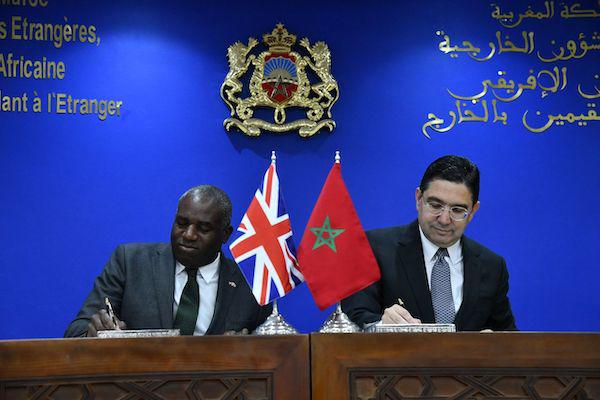The United Kingdom’s endorsement of Morocco’s autonomy plan for the Sahara region marks a significant turning point in the decades-long dispute, potentially paving the way for lasting peace and stability in North Africa. This official recognition, formalized in a joint communiqué signed on June 1, 2025, solidifies the UK’s position alongside other major global powers like the United States, France, and Spain, who have also expressed support for the Moroccan proposal. The UK’s commitment goes beyond mere acknowledgement, encompassing a pledge to align its bilateral, economic, regional, and international efforts with this stance, signaling a deeper strategic partnership with Morocco and a strong commitment to fostering regional integration and economic cooperation. This endorsement further isolates the Polisario Front, the separatist movement contesting Moroccan sovereignty over the Sahara, and strengthens Morocco’s position in the ongoing negotiations.
The UK’s decision to back the Moroccan autonomy plan signifies a recognition of its credibility and viability as a pragmatic solution. The plan, initially presented in 2007, offers a framework for self-governance within the Moroccan kingdom, addressing the aspirations of the Sahrawi population while preserving Morocco’s territorial integrity. The UK’s endorsement underscores the growing international consensus surrounding the autonomy plan, which now enjoys the support of a significant number of countries, including permanent and non-permanent members of the UN Security Council. This widespread support reinforces the legitimacy of the Moroccan proposal and reflects a global shift towards favouring a peaceful and sustainable resolution under Moroccan sovereignty.
The joint communiqué emphasizes the strategic importance of resolving the Sahara issue, not only for North Africa’s stability but also for promoting economic cooperation and integration across the region and beyond. The UK’s commitment to supporting development projects in the region, backed by a substantial financial pledge, further solidifies Morocco’s role as a key gateway for Africa’s socio-economic advancement. This economic dimension adds another layer to the UK’s endorsement, highlighting the potential for mutually beneficial partnerships and investments that a stable and integrated North Africa can offer.
The timing of the UK’s endorsement is particularly noteworthy, occurring against a backdrop of increasing international recognition of Morocco’s sovereignty over the Sahara. The growing number of countries supporting the autonomy plan, including influential members of the UN Security Council, signals a shift in the geopolitical landscape surrounding the dispute. This momentum, coupled with the UK’s strong endorsement, puts pressure on the remaining parties to engage constructively in the UN-led process and work towards a definitive resolution based on the Moroccan proposal. The UK, as a permanent member of the UN Security Council, has pledged to actively participate in these efforts, further strengthening the international push for a peaceful settlement.
The joint communiqué also acknowledges the leadership of King Mohammed VI of Morocco and the positive momentum he has fostered in addressing the Sahara issue. This recognition highlights the importance of Morocco’s proactive approach and its ongoing efforts to promote a peaceful resolution through the autonomy plan. The UK’s endorsement, coupled with the support of other key international players, provides a significant boost to Morocco’s diplomatic efforts and strengthens its position in the ongoing negotiations within the UN framework.
The UK’s endorsement of Morocco’s autonomy plan represents a major step towards achieving a lasting solution to the Sahara dispute. It signifies a growing international consensus around the viability and pragmatism of the Moroccan proposal, offering a pathway towards peace, stability, and economic integration in North Africa. The UK’s commitment to align its efforts with this stance, alongside its pledge to support regional development, underscores the strategic importance of the Sahara issue and its potential to unlock significant opportunities for cooperation and prosperity in the region and beyond. The growing international support for the Moroccan autonomy plan further isolates the Polisario Front and strengthens Morocco’s position in the ongoing negotiations, increasing the likelihood of a final resolution under Moroccan sovereignty.














